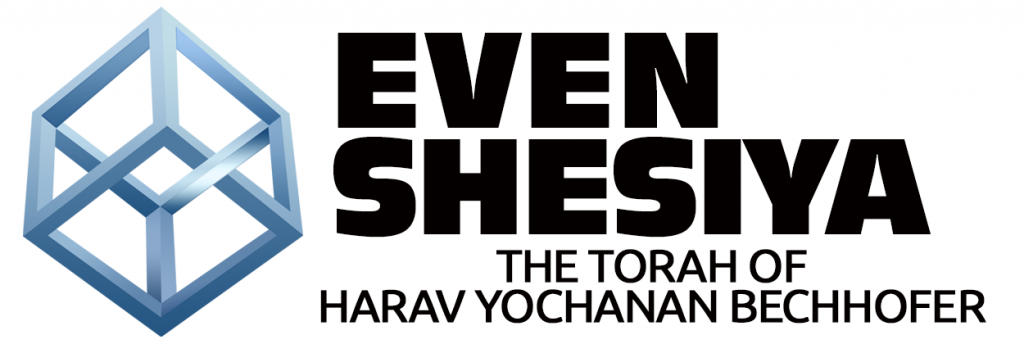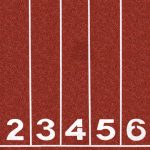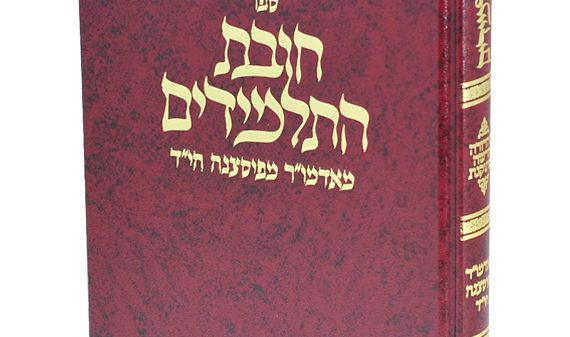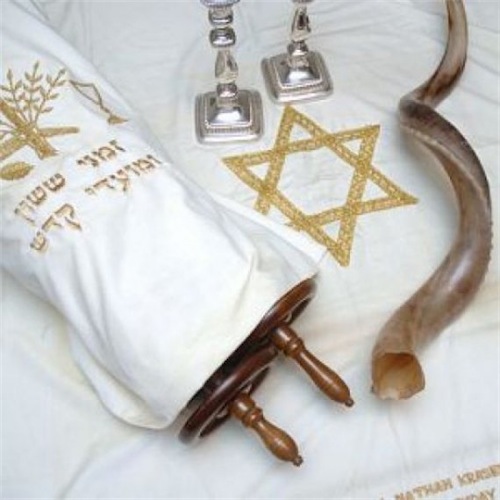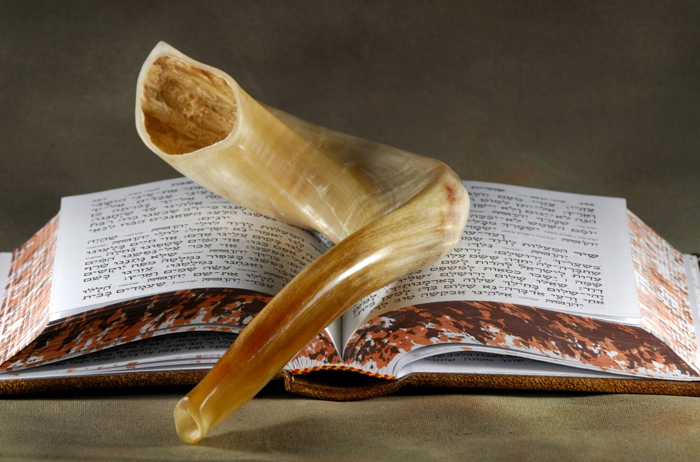Click here to download PDF
Why Bris Milah?
In this week’s double Parsha we have all the laws of human impurity which include the impurity of birth, Ziva, Tzaraas of the person, clothes, and houses, and how to purify all those impurities. There’s a strange break in the continuity. After saying that a woman who gives birth to a male child is impure for seven days it says: “on the 8th day he will be circumcised “. What does that have to do with anything? Why is the Torah deviating from the laws of impurity to discuss a seemingly outside law of “Bris Milah”?
Man Law vs Animal Law?
At the beginning of the Parsha, Rashi brings the midrash: “Just like man was the last thing created after all the other forms of life so also the laws pertaining to him were taught last after the laws pertaining to all the other life forms”- meaning that the laws of kashrus and impurity of animal carcasses in last week’s Parsha are to come before the laws of human impurity in this weeks parsha. What is the parallel between the laws of kashrus and the laws of human impurity to the sequence of creation by the Genesis? More importantly, the whole premise of this Midrash does not make sense! Animals are not commanded to keep kashrus, people are! All of the laws of the last week’s Parsha and the laws of this week’s Parsha are equally obligations on the Jewish people! What makes last week’s Parsha “animal law” and this week’s Parsha “human law”?
Loshon Harah
The type of impurity that takes up the bulk of these two parshas is the impurity of Tzaraas. Chazal teach us that this happens because of the sin of Loshon Harah. What is the ‘middah kneged Middah’ between lashon harah and Tzaraas?
Daas
The Gemara (Shabbos 31a) darshens the Pasuk (Yeshayahu 33:6) “and because of the faith you had at times of trouble you will have strength salvation wisdom and knowledge….” on the six orders of the Mishnah. “Faith” is the order of Zeraim, “times” is the order of Moed, “strength” is the order of Nashim, ‘salvation’ is the order of Nezikin, and “wisdom” the order of Kodshim, “knowledge” (Daas) is the order of Taharos which deals with the laws of Purity and impurity. Why are the laws of Purity and impurity called “knowledge” (Daas)?
7 vs 8 Revisited
With principles that we have previously presented (particularly in the parsha sheet from Vayakheil-Pikudei-Parah and in last week’s Parsha sheet) we can immediately decode much of what the Torah is telling us. My Rebbe HaGaon HaRav Moshe Shapira ztl has taught me that “Tumah” is to be sealed off and “Tahara” is openness (see parsha sheet from Vayakheil-Pikudei-Parah) we have also learned (last week’s Parsha sheet) that “7” is when things are separate – “8” represents integration. With this we could understand a recurrent pattern in all the laws of impurity. Impurity is in sevens! Whether when first determining the impurity or in the length of the impurity. Apropos to the number “7” this is the period where the Impure one is sealed off from his/her spouse, (and from society when applicable). The “8th” is when they’re already pure as far as civil affairs and they are ascending to the higher level of bringing sacrifices to be integrated in the Divine service in the Beis HaMikdash which is represented by the 8th, as we have explained.
Daas choice & speech
Daas – “knowledge” is what makes a “man” as opposed to a minor, imbecile, or an animal. This “knowledge” makes us responsible for our choices. Animals and minors have ‘intelligence’ but they do not have the special ability and responsibility of choosing correctly. The Ancients qualified the forms of existence on Earth as: the inanimate, the vegetable, the living, and the speaking. These are the two differentiating factors between man and animal: knowledge, which makes us responsible for our choices, and speech. Is there a connection between these two factors?
Power of connection
The ability to choose is the ability to connect and disconnect. Whatever we choose is an act of connecting to that which was chosen. Refusal is an act of disconnecting or avoiding contact. The gift of speech, which is granted by man’s Divine Soul, is far above and beyond communicating for pragmatic purposes. Animals have the ability to convey messages to each other whether for the purpose of mating, crying for help, or warning of danger. The power of speech granted the human being who has a “Tzelem Elokim” is about making meaningful conceptual connections! It is the power to share ideas to build connections and whole societies on ideas and values. The ability to choose and the ability to speak are the two major powers that bring out what the “Tzelem Elokim” is all about: connecting and configuring reality. There are things that are to be incorporated, and there are the things that should be rejected, like evil. This entire configuration of reality is conceptual and spiritual – not physical. Hence the power of speech is necessary to get everyone ‘on board’ with the ideas, values, and ideology that everyone is supposed to join in and unite under.
The attribute of “Daas” (knowledge) which makes “man” is the power that allows for connection. From there comes man’s greatest abilities: the power of choices and the power of speech. .With this my Rebbe HaGaon HaRav Moshe Shapira zt”l explained why the Mishna in Kesuvos uses “speaking” as a clean way of saying ‘consorting’ – because speech is connection. He further explained that the root of the word “Lashon” –tongue/language is “Lash” – to knead (like dough!) because speech is meant to ‘knead’ the world together!
Marriage
With this we can understand why “Daas” (knowledge) in Hebrew also means to ‘connect’ and to ‘marry’. The Jewish marriage is a not just a physical union, but a conceptual union, as they build their house on the purity and sanctity of Torah values. The integration with each other is actually a ‘mini Temple’ reflecting the integration of the physical forces and the Divine. “Man and woman if they Merit the Divine Presence rests between them” (sotah 17) with this we can understand the Gemara in Brachos: “anyone who gladdens a bride and groom is as if he rebuilt one of the ruins of Yerushalayim”. The Jewish union between man and wife is perfectly parallel to the integration of the cosmic forces in the Beis HaMikdash that brings in the Divine presence. This is the secret why one of outcomes of impurity (in most cases of self-generated impurity) is the prohibition of contact with the spouse. There is ‘blockage’ disrupting the spiritual connection, and the Jewish marriage is about spiritual union!
Lashon Harah – misusing and forfeiting the “Tzelem”
When a person speaks loshon harah he is defiling his “Tzelem Elokim”. The power of speech comes from the “Tzelem” for the purpose of the “Tzelem”- to connect the world with the goodness and sanctity of Torah values. The power of speech was meant to connect people and the whole reality with Torah ideology. However the lashon harah speaker infuses the world with ‘badness’ and creates division between people, above and beyond how things are already divided ‘naturally’. Tzaraas is a disruption of the “Tzelem” – as Onkelus translates Tzarass as a ‘plague of confinement’. He is now in the polar opposite state of a “Tzelem” and the epitome of what “Tuma” is – disconnected and sealed off – like he did to those he slandered. This the secret of why the Metzorah is “considered as dead” (Nedarim 64b) because he has no “Tzelem”!
Man’s Law
All Torah laws are incumbent on the Jewish people. However, there are the laws that focus on fixing and integrating the components of reality around us and then there are the laws that are coming to fix and enhance man himself. Man himself is his “Tzelem” which carries “Daas” which give him choices and speech. The laws of Man’s “Tumah & Taharah” directly address man’s Divine image and his ability to be the incorporator of the entirety of reality. The laws of personal purity follow the laws of kashrus just like man was created last. Why was man created last? Because he is the final capstone and connector of all that came before him! So also the laws of “Taharos” that reflect the capacity of man as the connector with his power of “Daas” are last – after the laws of kashrus that ‘fix’ the individual life forms onto themselves.
Bris Milah – power of speech in action
The Torah was not going ‘off topic’ when it mentioned Bris Milah. Bris Milah on the 8th day, which is the day of connection and integration, because Bris Milah is the completion of man’s “tzelem” which makes connection and integration. The foreskin is a blemish that disrupts the “Tzelem”. The foreskin is there for 7 days representing the seven days where things are in fragments and where “tumah” can manifest. Chazal say (Mishna Pesachim 8:4): “he who parts from the foreskin is as if he parted from the grave”. Bris Milah is a form of attaining purity and enables a person have a meaningful connection with his spouse which is predicated on Torah values. The sefer Yetzira says: “bris milah is a parallel to the Covenant of the tongue”. The word Mila means “to cut” but it also means “word”. Bris Milah is to put an expression of the power of speech with all its sanctity and purity into physical connection!
Good Shabbos
